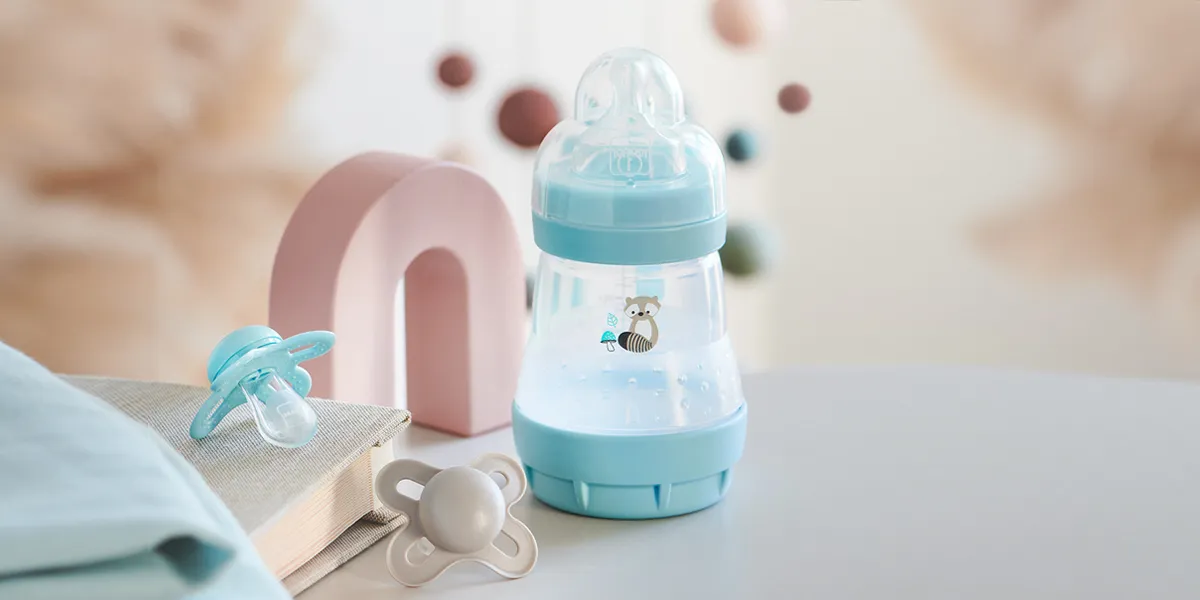Everything is ready for the birth (at least when it comes to your baby)! In week 36 of pregnancy your little one is fully developed, the lanugo hair has disappeared, and very little of the waxy vernix coating on the baby's skin still remains. Read on to discover how you can tell whether your baby has dropped in your pelvis and why this is important, as well as how to deal with anxiety surrounding the birth.
What's Going On in Your Belly at 36 Weeks Pregnant?
The fetus is around 19 inches long (crown to heel) and weighs roughly 6 lbs. The feet are around 3 inches in length.
There is not much left to do except – you've probably guessed it – put on weight! Your baby is missing around 2 lbs of its birth weight. However, the weight range varies greatly between individuals. It is impossible to say what is "normal" without any context (for example, genetic predisposition and the course of the pregnancy). Heavier newborns have a much easier time than premature babies – but by now your baby would be a late preemie and would probably be able to survive without medical assistance.
Your baby is now about the size of a papaya.

Your little one should now be lying with its head down in your pelvis. Some babies have already dropped down in the pelvis – this can result in the baby belly changing shape and the bump "hanging" noticeably lower. If an examination shows that your little one has "dropped", this means that the head is now positioned lower down on your pelvic bone. This is advantageous if labor starts with the membranes rupturing because the umbilical cord can no longer become trapped between the head and the pelvic outlet. This is referred to as an "umbilical cord prolapse" and can result in complications during labor that may be life-threatening for the child.
If the baby's head has not yet dropped in the pelvis, the expectant mother must lie down immediately if the membranes rupture and be transported to hospital in this position.
How Do You Feel at 36 Weeks Pregnant?
Just four weeks to go until your due date! Things are slowly getting serious and a few concerns start to run through the minds of many pregnant women.
What should you do if you are worried about the birth?
Everyone talks about this being THE event in the life of a woman. Perhaps you have heard tales of childbirth from friends or family members, or you have read stories in web forums. These may be encouraging, but they can also heighten concerns. Worries about labor usually consist of a blend of different "areas of concern": For example, the pain, the unknown, the hospital, a cesarean section, the newborn baby, your new role as a parent. If you know what is really worrying you, talk about it with your partner. You may also find that medical or psychological advice brings you significant comfort. If you have easy access to midwifery care, this is the perfect point of contact when it comes to both major and minor concerns about the birth.
When it comes to contraction pains, every woman's experience is different. What is certain is that worrying can make pain worse. This is why relaxation techniques have long been employed as an effective pain relief method in midwifery. Such techniques include breathing exercises and hypnosis techniques.
What is the best way to prepare for labor?
The system of "hypnobirthing" applies these methods, while yoga courses for birthing preparation and expectant mothers teach various methods for active relaxation and "contraction work". The services on offer vary greatly depending on region – find out what the options are in your area and what is best suited for you.
Your doctor can also let you know at this stage what options you have for pain relief during labor – anything that relieves your anxiety is a positive thing and the more information you have, the better. Many women find it helpful to familiarize themselves with the hospital or birthing center in an effort to calm their nerves.
It is often the sense of a loss of control that causes anxiety. Labor means entering an uncertain situation with unfamiliar people in a hospital – the greater the sense of control a pregnant woman feels she has over the birth, the more relaxed she can usually be. The best way of achieving this is described in many books on the subject of "self-determined birth" – perhaps you will find this good reading material during the last few weeks of your pregnancy!
Writing a birthing plan is also a helpful form of preparation. This may contain instructions for the midwives, such as whether your partner intends to be present, whether you wish to be given an epidural, whether your baby should be laid on you immediately after birth (before being washed or thoroughly examined).
Ultimately that is one of the most important things of all: Realizing what is really important to you.
Photo Credits: Shutterstock
Sources:
Your Pregnancy Week by Week, Prof. Lesley Regan, DK Limited, London, 2019, pp. 266 f.




























